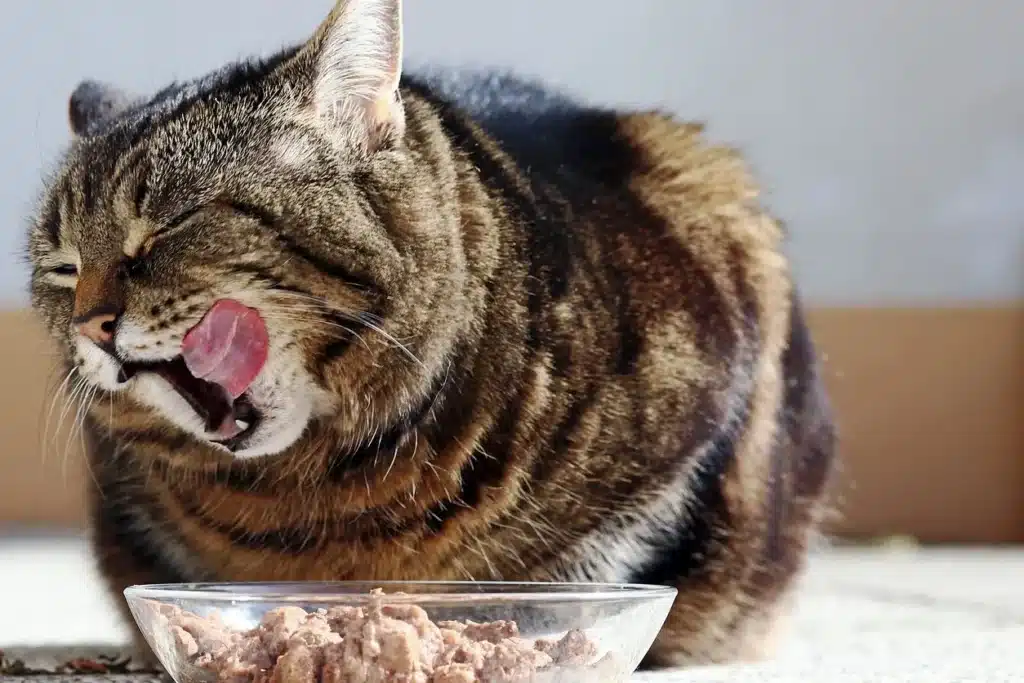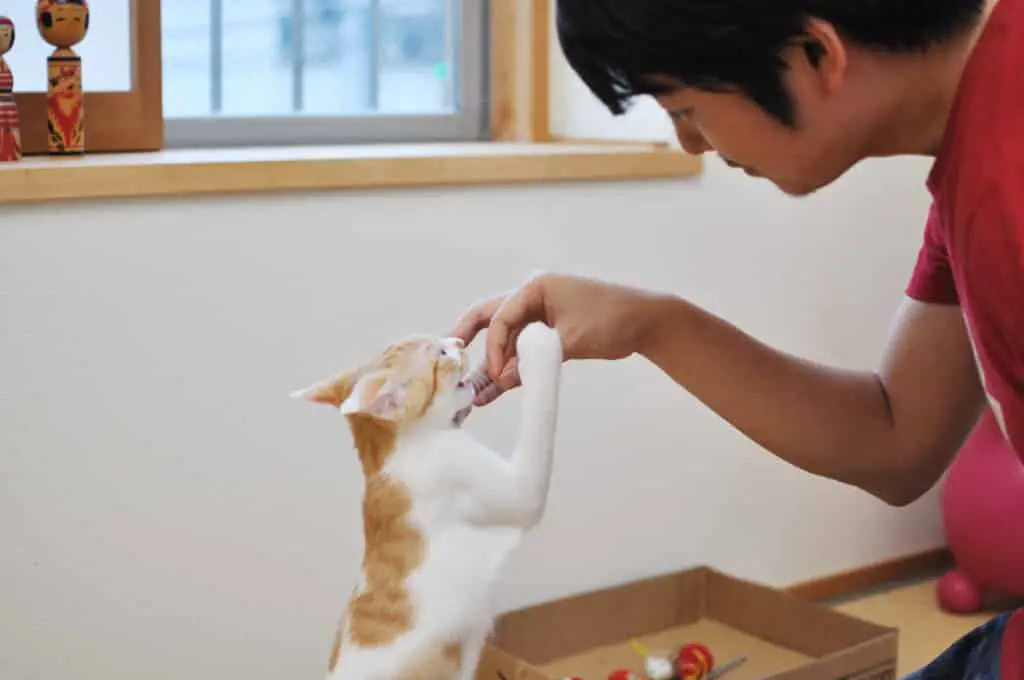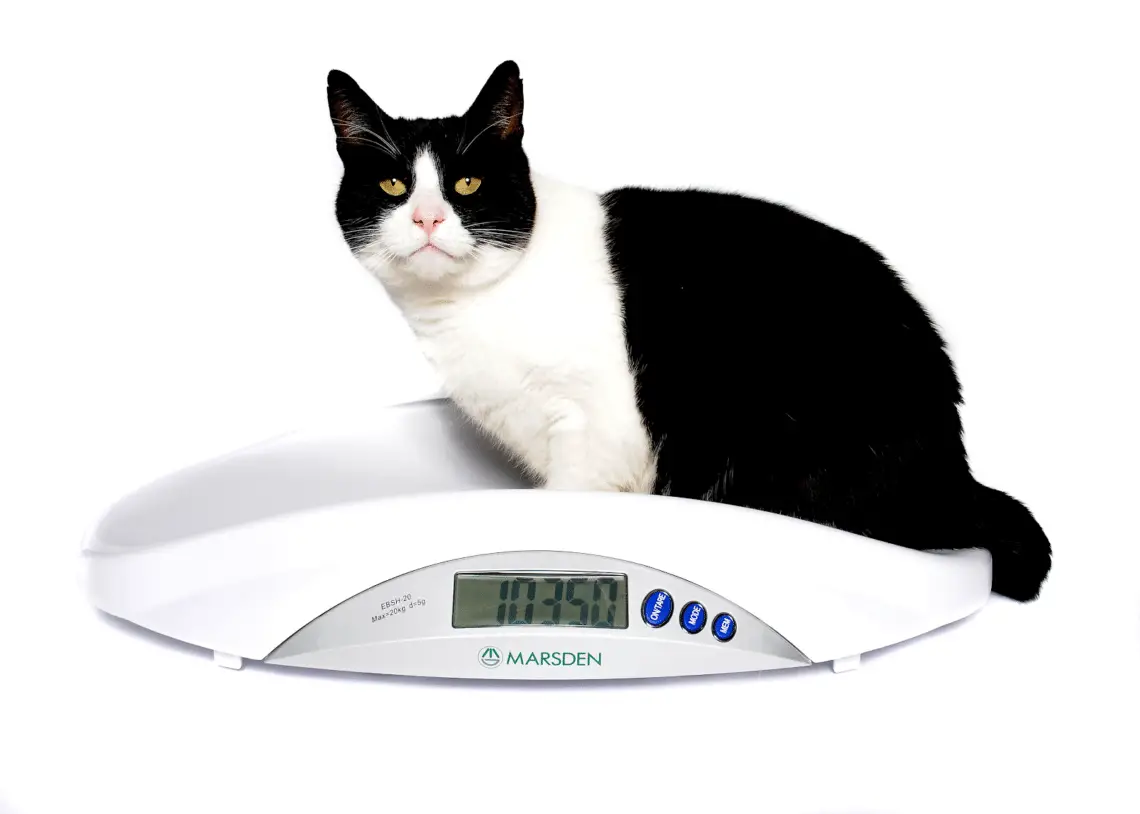Introduction
How To Get A Cat To Gain Weight: Having a healthy weight is important for cats to maintain their overall well-being. However, some cats may struggle with gaining weight, which can be a cause for concern for their owners. Whether your cat is underweight due to a medical condition or simply has a fast metabolism, there are several strategies you can employ to help them gain weight in a safe and healthy manner.
Before diving into the methods to help your cat gain weight, it is crucial to understand why weight gain is important for their health. Cat Food that are underweight may have a weakened immune system, making them more susceptible to illnesses and infections. Additionally, they may lack the necessary energy to engage in physical activities and may experience muscle wasting. Therefore, it is essential to address weight gain in order to improve their overall health and quality of life.
Is your furry feline friend looking a bit too skinny? Just like humans, cats can also experience weight fluctuations that might lead to health concerns. Whether your cat is recovering from an illness, struggling with a picky appetite, or simply needs to gain a bit of extra weight, this guide is here to help. In the following sections, we’ll explore a range of effective strategies and actionable tips to safely and gradually help your cat gain the necessary weight for a healthy and active life. From adjusting their diet and choosing the right food to incorporating feeding techniques and seeking veterinary advice, we’ve got you covered on the journey to ensuring your cat’s optimal well-being and achieving a balanced weight gain.

Why is my cat so skinny but eats?
If you’re wondering ‘why is my cat always hungry but skinny’, one possible reason is intestinal parasites. These little creatures are feeding off of your cat’s food intake and sometimes they may not leave enough nutrients to satisfy the cat’s needs.
There can be several reasons why a cat may appear skinny despite having a healthy appetite. It is important to understand that cats, like humans, can have different body types and metabolisms. Some cats naturally have a leaner build, while others may have a slower metabolism that makes it harder for them to gain weight. However, if your cat is consistently losing weight or appears excessively skinny, it may be a cause for concern.
One possible reason for a skinny cat that eats well is an underlying medical condition. Hyperthyroidism, for example, is a common condition in older cats that can cause weight loss despite an increased appetite. Other medical conditions such as diabetes, kidney disease, or gastrointestinal disorders can also affect a cat’s ability to gain or maintain weight. If you notice any other symptoms such as increased thirst, frequent urination, or changes in behavior, it is important to consult a veterinarian for a proper diagnosis.
Diet can also play a role in a cat’s weight. While a cat may eat well, the quality and quantity of the food they consume can impact their body condition. Feeding a high-quality, balanced diet that meets their nutritional needs is essential for maintaining a healthy weight. Additionally, some cats may have food allergies or sensitivities that can affect their ability to absorb nutrients properly, leading to weight loss.
Stress or anxiety can also contribute to weight loss in cats. Changes in the environment, such as moving to a new home or the addition of a new pet, can cause stress and affect a cat’s appetite. It is important to provide a calm and stable environment for your cat and address any potential sources of stress.
How do you fatten up a cat?
What to Feed a Cat to Help Them Gain Weight
- Find a Type of Food That Fits Your Cat’s Preferences. …
- Make Sure the Food Fits Their Nutritional Needs. …
- Feed Small, Frequent Meals. …
- Try Warming Up Your Cat’s Wet Food. …
- Offer the Right Snacks Between Meals. …
- Decrease Your Cat’s Anxiety.
There are several reasons why a cat may need to gain weight. It could be due to a medical condition, such as an illness or surgery, or it could simply be because the cat is underweight. Whatever the reason, it is important to approach weight gain in cats carefully and with the guidance of a veterinarian.
One of the first steps in helping a cat gain weight is to determine the underlying cause of their weight loss or low weight. If there is an underlying medical condition, such as hyperthyroidism or diabetes, it is important to address and treat that condition first. Once any medical issues have been addressed, a veterinarian can provide guidance on how to safely and effectively help the cat gain weight.
Diet plays a crucial role in helping a cat gain weight. A high-quality, calorie-dense cat food should be chosen, preferably one that is specifically formulated for weight gain. These foods are typically higher in fat and protein, which can help promote weight gain. It is important to follow the feeding guidelines provided by the veterinarian or the cat food manufacturer to ensure the cat is receiving the appropriate amount of food.
In addition to a calorie-dense diet, it may be necessary to supplement the cat’s meals with additional nutrients. This can be done by adding a nutritional supplement or a high-calorie paste to the cat’s food. These supplements can provide extra calories and nutrients that can help with weight gain. However, it is important to consult with a veterinarian before adding any supplements to a cat’s diet.
Finally, it is important to monitor the cat’s weight gain progress and make adjustments as needed. Regular weigh-ins at the veterinarian’s office can help track the cat’s progress and ensure that they are gaining weight at a healthy rate. If the cat is not gaining weight or is losing weight despite efforts to help them gain, it is important to consult with a veterinarian to determine if there are any underlying issues that need to be addressed.
How quickly can a cat gain weight?
The entire process can take a few months and weight gain should be a slow and steady process. Purina provides a chart for a basic understanding of body condition scoring to help monitor the cat’s condition.
A cat can gain weight at different rates depending on various factors such as its age, breed, activity level, and overall health. While some cats may gain weight gradually over time, others may experience rapid weight gain. It is important for cat owners to monitor their pet’s weight and ensure that it remains within a healthy range.
Age: Kittens tend to gain weight more quickly than adult cats as they are still growing and developing. During the first few months of life, kittens can gain weight at a rapid pace. However, as they reach adulthood, their weight gain slows down.
Breed: Different cat breeds have different body types and metabolic rates, which can affect their weight gain. Some breeds, such as the Maine Coon, are naturally larger and may gain weight more quickly than smaller breeds.
Activity Level: Cats that are more active and engage in regular exercise are less likely to gain weight quickly. Regular playtime and physical activity help cats burn calories and maintain a healthy weight. On the other hand, cats that are sedentary or have limited mobility may be more prone to weight gain.
Overall Health: Cats with certain health conditions, such as hypothyroidism or diabetes, may experience rapid weight gain. These conditions can affect the cat’s metabolism and cause them to gain weight more quickly than usual. It is important for cat owners to monitor their pet’s health and consult a veterinarian if they notice any sudden or excessive weight gain.
What to do if my cat is underweight?
If Your Cat Is Underweight
Consult your vet; they may recommend a specialized diet higher in protein and fat to help your underweight cat reach an optimal weight, and will also have advice on whether to free feed your cat or feed multiple servings per day to encourage weight gain.
It is not uncommon for cats to be underweight, and there can be several reasons for this. If you notice that your cat is not maintaining a healthy weight, it is important to take action to address the issue. Underweight cats may be more susceptible to illness and have a weakened immune system, so it is crucial to address the problem as soon as possible.
One of the first steps you should take if your cat is underweight is to schedule a visit to the veterinarian. A professional can help determine the underlying cause of your cat’s weight loss and provide appropriate treatment. They may perform a physical examination, run blood tests, or recommend other diagnostic procedures to identify any underlying health issues.
In some cases, the cause of your cat’s underweight condition may be due to a medical condition such as hyperthyroidism or diabetes. These conditions can affect your cat’s metabolism and cause weight loss. If a medical condition is identified, your veterinarian will develop a treatment plan to manage the condition and help your cat regain weight.
Dietary changes may also be necessary to help your cat gain weight. Your veterinarian may recommend switching to a high-calorie cat food or adding supplements to your cat’s diet. It is important to follow your veterinarian’s recommendations and monitor your cat’s weight closely to ensure they are gaining weight in a healthy manner.
Additionally, stress or anxiety can contribute to weight loss in cats. If your cat is experiencing stress, it is important to identify and address the underlying cause. Providing a calm and comfortable environment for your cat, along with plenty of mental and physical stimulation, can help reduce stress and promote weight gain.
Can eggs help a cat gain weight?
No more than 10% of your cat’s daily calories should come from treats—including eggs. One large chicken egg has about 75 calories. On average, a 9-lb cat needs about 280 calories per day. Feeding too much egg (or any other treat) can easily lead to unhealthy weight gain.
Yes, eggs can help a cat gain weight. Eggs are a great source of protein and healthy fats, both of which are essential for weight gain in cats. Protein is necessary for building and repairing tissues, while fats provide a concentrated source of energy. By incorporating eggs into a cat’s diet, you can increase their calorie intake and promote weight gain.
Protein is an important nutrient for cats as it helps support muscle growth and development. Cats are obligate carnivores, which means they require a diet high in animal protein. Eggs are an excellent source of high-quality protein, containing all the essential amino acids that cats need for optimal health. By providing your cat with a protein-rich diet that includes eggs, you can help them build and maintain lean muscle mass, which can contribute to weight gain.
In addition to protein, eggs also contain healthy fats that can help a cat gain weight. Fats are a concentrated source of energy, providing more than twice as many calories per gram compared to protein or carbohydrates. Including eggs in your cat’s diet can increase their calorie intake, which is essential for weight gain.
It’s important to note that while eggs can be beneficial for weight gain in cats, they should be fed in moderation and as part of a balanced diet. Too many eggs can lead to an imbalance in nutrients and potentially cause other health issues. It’s always best to consult with your veterinarian before making any significant changes to your cat’s diet.
Eggs can help a cat gain weight due to their high protein and healthy fat content. However, it’s important to feed eggs in moderation and as part of a balanced diet to ensure your cat receives all the necessary nutrients for optimal health.
When it comes to helping a cat gain weight, it’s important to focus on increasing their calorie intake. One way to do this is by offering them a high-calorie cat food. Look for cat food brands that are specifically formulated for weight gain or are labeled as “”high calorie”” or “”weight management””. These types of cat foods are usually higher in fat and protein, which can help promote weight gain.
In addition to choosing the right cat food, you can also try adding some extra toppings or supplements to their meals. For example, you can mix in a small amount of canned tuna or chicken, which are high in calories and protein. Another option is to add a calorie-dense supplement, such as a nutritional gel or paste, to their food. These supplements are designed to provide additional calories and nutrients to help with weight gain.
It’s important to note that any dietary changes should be made gradually to avoid upsetting your cat’s stomach. Start by introducing small amounts of the new food or supplements and gradually increase the portion sizes over time. Additionally, it’s always a good idea to consult with your veterinarian before making any significant changes to your cat’s diet.
Are there any specific cat food brands or formulas that are recommended for weight gain?
When it comes to helping a cat gain weight, there are specific cat food brands and formulas that are recommended. These brands and formulas are designed to provide the necessary nutrients and calories to support weight gain in cats.
One recommended cat food brand for weight gain is Royal Canin. They offer a variety of formulas that are specifically formulated for cats that need to gain weight. These formulas are often higher in calories and contain a balanced blend of proteins, fats, and carbohydrates to support healthy weight gain.
Another recommended brand is Hill’s Science Diet. They have a range of cat food formulas that are designed to help cats gain weight. These formulas are often rich in high-quality proteins and contain added calories to promote weight gain.
Are there any supplements or vitamins that can aid in a cat’s weight gain?
When it comes to helping a cat gain weight, there are indeed supplements and vitamins that can be beneficial. One important supplement to consider is omega-3 fatty acids. These fatty acids can help improve a cat’s appetite and promote weight gain. They can also have anti-inflammatory effects, which can be helpful if the cat’s weight loss is due to an underlying health issue.
In addition to omega-3 fatty acids, another supplement that can aid in weight gain is probiotics. Probiotics help promote a healthy gut flora, which can improve digestion and nutrient absorption. This can be especially beneficial for cats with digestive issues that may be hindering weight gain.
It’s important to note that while supplements can be helpful, they should always be used under the guidance of a veterinarian. The dosage and duration of supplementation should be determined based on the individual cat’s needs and health condition. It’s also important to choose high-quality supplements from reputable brands to ensure their effectiveness and safety.
What are some potential health issues that could be causing a cat’s inability to gain weight?
There are several potential health issues that could be causing a cat’s inability to gain weight. One common issue is a thyroid problem, such as hyperthyroidism, which can cause weight loss despite a good appetite. Another possible health issue is gastrointestinal problems, such as inflammatory bowel disease or parasites, which can interfere with nutrient absorption and lead to weight loss. Additionally, dental problems, such as tooth decay or gum disease, can make it difficult for a cat to eat properly and result in weight loss.
Other potential health issues that could be causing a cat’s inability to gain weight include diabetes, kidney disease, liver disease, or cancer. These conditions can affect a cat’s metabolism, appetite, or nutrient absorption, leading to weight loss. It is important to consult with a veterinarian to determine the underlying cause of a cat’s weight loss and develop an appropriate treatment plan.
Are there any behavioral or environmental factors that could be affecting a cat’s weight?
Yes, there are several behavioral and environmental factors that can affect a cat’s weight. One important factor is the cat’s activity level. If a cat is not getting enough exercise or mental stimulation, they may become sedentary and gain weight. It is important to provide cats with opportunities for play and exercise, such as interactive toys or a scratching post.
Another factor is the cat’s feeding routine. If a cat is free-fed or has constant access to food, they may overeat and gain weight. It is recommended to establish a regular feeding schedule and measure out the appropriate portion sizes for each meal. This can help prevent overeating and promote weight management.
Additionally, stress can also impact a cat’s weight. Cats that are experiencing stress or anxiety may have a decreased appetite or engage in comfort eating, leading to weight gain. It is important to create a calm and safe environment for cats, providing them with hiding spots, vertical spaces, and plenty of attention and affection.

Conclusion
If you are looking to help your cat gain weight, there are several steps you can take to ensure their health and well-being. First and foremost, it is important to consult with your veterinarian to rule out any underlying medical conditions that may be causing your cat’s weight loss. Once any medical issues have been addressed, you can focus on implementing a proper diet and feeding routine for your cat.
One of the key factors in helping your cat gain weight is providing them with a high-quality, nutrient-dense diet. This may involve switching to a cat food that is specifically formulated for weight gain or adding supplements to their current diet. It is important to monitor your cat’s weight and adjust their food intake accordingly to ensure they are gaining weight at a healthy rate.
In addition to a proper diet, it is important to create a feeding routine for your cat. This means feeding them at the same time each day and providing them with a quiet, stress-free environment during meal times. Avoid free-feeding your cat, as this can lead to overeating and weight gain in an unhealthy manner.
Lastly, it is important to monitor your cat’s weight gain progress and make any necessary adjustments along the way. Regularly weigh your cat and keep track of their weight to ensure they are on the right track. If you are not seeing the desired weight gain, consult with your veterinarian for further guidance and potential adjustments to their diet or feeding routine.



No Comments